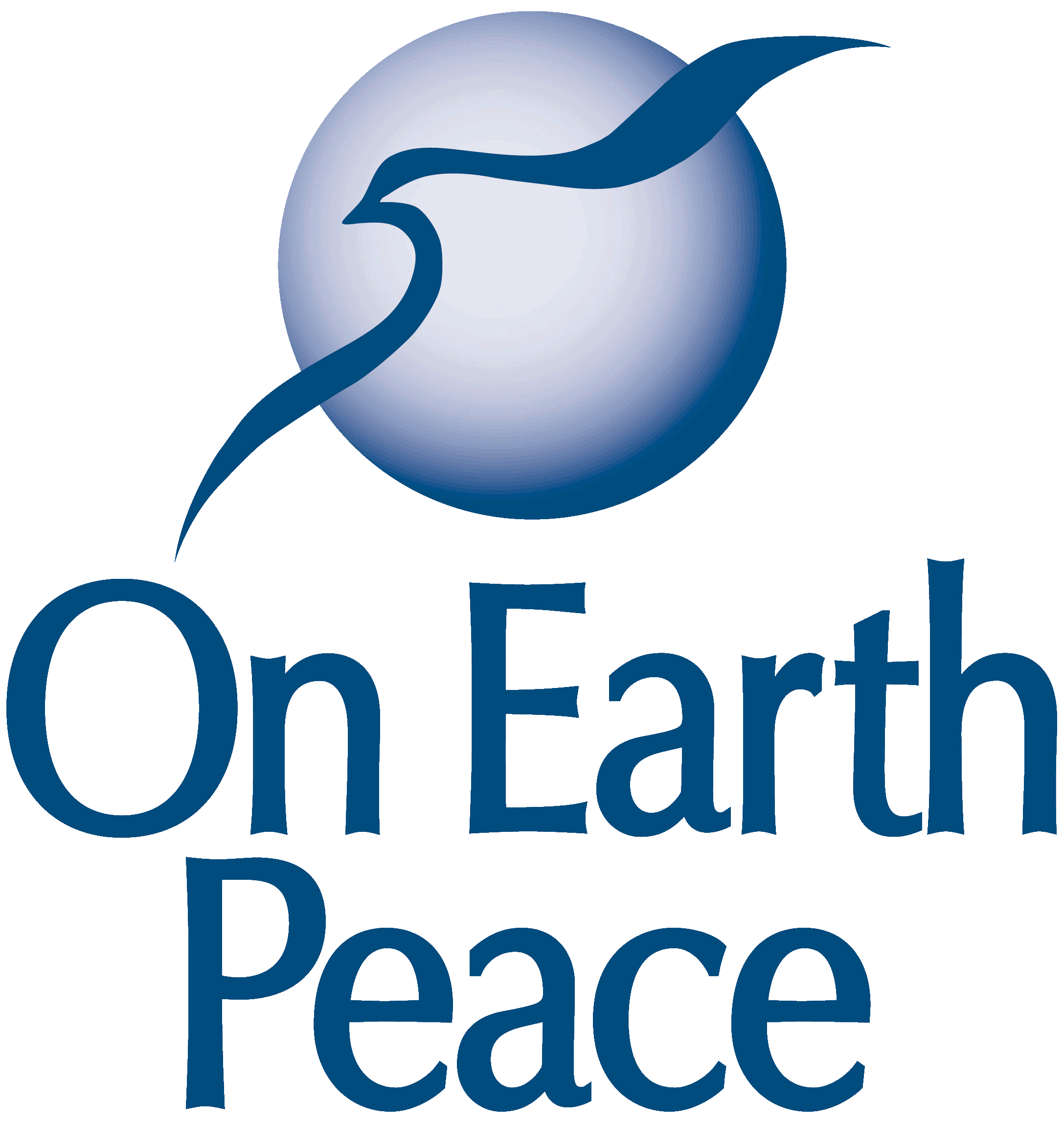
Protestors at the US/Mexico border call for welcome
Written By Ben Leiter-Grandison, member of the OEP Anti-racism Transformation Team, for the 2020 OEP Spring Newsletter. In response to the OEP value Anti-racism/Anti-oppression.
For at least the past five years, On Earth Peace has been moving, in fits and starts, from a multicultural institution to an antiracist one. Making this shift has meant moving from a mindset and practice of hospitality to one of accountability. A multicultural institution opens its doors to people of color and other socially oppressed groups but does little to change the preexisting culture, policies, and decision-making structures that tend to favor superiority. It extends a welcome, but one that is implicitly conditioned on following rules “the welcomed” did not write, much like being a guest in someone else’s house. Hospitality, while generous and kind, keeps unequal power relationships intact. Indeed, to be hospitable, one first must have, and remain in control, of the power and property to host.
An anti-racism/anti-oppression ethic ensures not only that there is a seat at the table for everyone but also asks: who owns the table at which everyone is welcome? In the most basic sense, our anti-racism/anti-oppression value calls OEP into an equal relationship with antiracist people of color and other socially oppressed groups. Accountability allows OEP to answer to those who have long been excluded, silenced, or conditionally welcomed. As such, people of color, women, young people, and LGBTQ people, are claiming full participation and co-ownership in the life of the organization. For white people and those of other dominant identities, living into antiracist/anti-oppressive accountability means being open to transfiguration—the emergence of a more beautiful and beloved community characterized by full inclusion, shared power, and common destiny with the oppressed. Any pain associated with loss of unequal power or identity is superseded by a turn towards God’s radical vision of shalom: a community fully restored, a place of belonging and dignity for all.
One of the first major steps OEP took toward becoming an antiracist organization was to take a hard, honest look at ourselves and then make that exercise of self-examination a regular practice. In partnership with Crossroads Anti-racism Organizing and Training, we started with a racism “audit” of the organization to identify how the institutional structure and culture of OEP maintained white power and privilege. We also began a regular schedule of racial caucusing – creating space for ongoing conversations about how racism affects organizational life and work. Antiracism training for the board and staff provide us with a common language and analysis to facilitate these conversations and deepen our understanding of systemic oppression.
Out of these spaces of learning and discovery came real changes. After decades of meeting in New Windsor, MD, we now hold our organizational meetings in people of color majority locations like Chicago, Harrisburg, and Baltimore. We intentionally reserve space on our board of directors for people of color and those of other marginalized identities. The board created a co-chair model to be filled by one person of color and one white person as a way of practicing multi-racial leadership and power-sharing. Before making major decisions and calling board leadership, we pause to ask: how might racism be influencing our choices? And: how will oppressed groups be impacted by our decisions? We appoint power observers at our board meetings to help us name and interrupt hard-to-break habits of racism, white fragility, and sexism that still dwell within us.
Living in relationship with and accountability to oppressed groups is at the heart of how we work together as an organization, how we understand ourselves, and how we make decisions. It is a value that is deeply grounded in our commitment to follow Jesus, the one who identified with society’s underside and marginalized, overturned social hierarchies, and said: "For I have set you an example, that you also should do as I have done to you” (John 13:15).

Showing 1 reaction
Sign in with